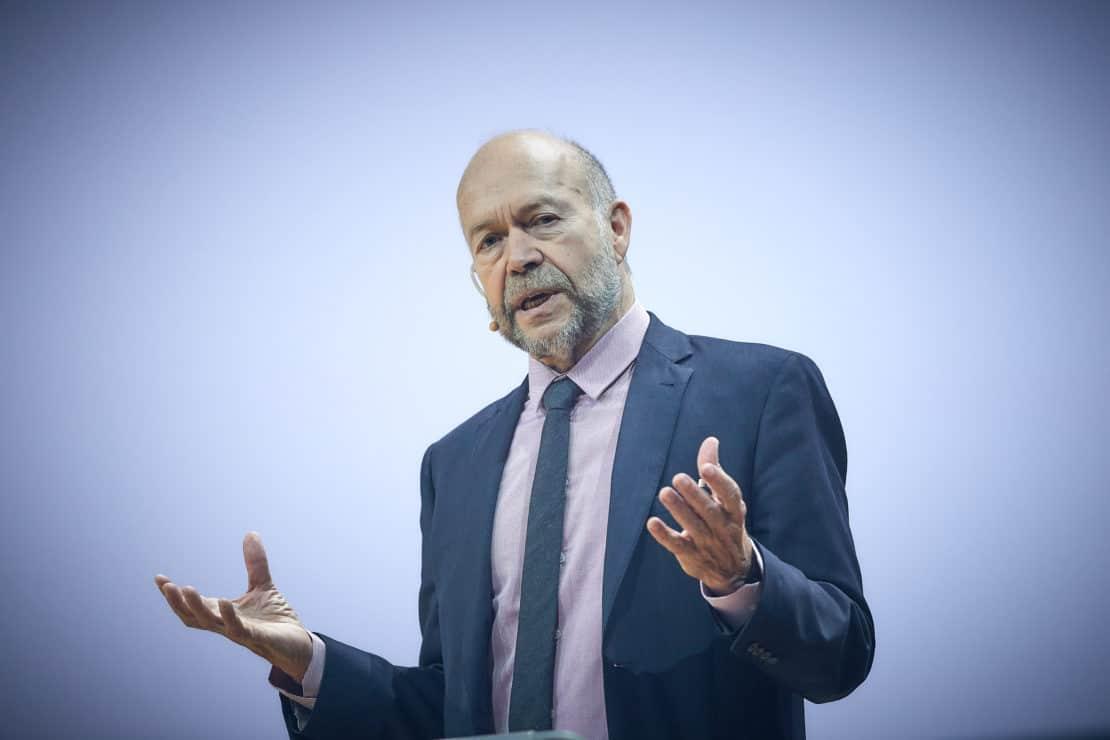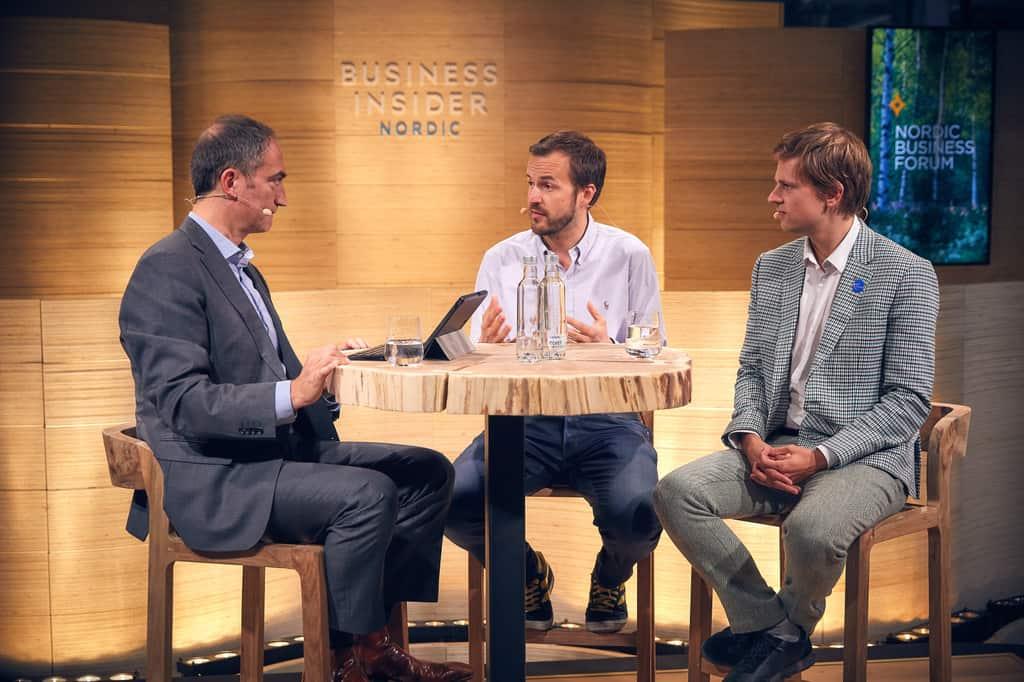2Oct2017
Glowing optimism about the Paris Agreement is “bullshit,” and the European Union’s cap and trade principle is “gimmicky.” The only real way to reduce fossil fuel emissions and rectify climate change is to impose an across-the-board carbon fee, according to James Hansen.
An adjunct professor at Columbia University’s Earth Institute and former director of the NASA Goddard Institute for Space Studies, Hansen’s research focuses on man-made climate change. During his talk, he stressed that the regions of the world closer to the equator are being hit hardest by global warming, having an effect on extreme events.
“The frequencies of fires and droughts are increasing, and when it does rain you get too much rain and floods,” said Hansen. “That has an effect on livability in the low latitudes.” He said that North America and Europe should prepare themselves for influxes of more migrants from warmer regions if things stay “business as usual,” fleeing not only environmental crises but the domestic and international conflicts caused by it.
“It’s becoming uncomfortably warm,” said Hansen. “It’s the north that is getting all the impact and the south that is getting the biggest impact.”
Meantime, the efforts undertaken by the international community, or within the EU, to undo or slow this damage have not gone far enough, Hansen said. “The reality is that emissions in the developing world are staying more or less constant or are still increasing” under such schemes, he said.
The crux of the matter is that fossil fuels continue to be the cheapest energy source, and as long as they remain so, people will continue to prefer them over others solutions. Hence his advocacy of a fee on carbon emissions at either point of production or port of arrival. Proceeds from such a tax would go to the public and stimulate the economy.
“GDP actually increases in such a case,” said Hansen. “This would improve the economy and improve the development of clean energy and energy efficiency,” he said. “This is the only internationally viable approach.”
His point didn’t go unchallenged. During the Hot Seat Session following Hansen’s talk, Mika Anttonen, founder of the Nordic energy company St1, argued that the carbon fee concept “only leads to talking and talking and getting nothing done.
“It’s very simple,” said Anttonen. “If we want to cut crude oil production, we cut crude oil production,” he said. “It can be done. All this talk about mechanisms and systems is so complicated … Countries won’t agree on it.”
Both Anttonen and Petteri Taalas, the current secretary-general of the World Meteorological Organization, agreed with Hansen’s description of the problem. “Altogether, we expect that the hurricane season in the Caribbean and the United States will be the most expensive season of natural disasters ever,” noted Taalas. “This is very much in line with what we expect in the future,” he said. “Disasters are becoming more frequent. They are also becoming more expensive.”
For Hansen, that’s a burden that energy companies should bear, a hidden cost is not factored into cheap fossil fuel prices.
“Right now they are getting away with using the atmosphere as a free waste dump, where air pollution, water pollution, and climate change are not included in the price of fossil fuels,” he said.”We have to make fossil fuel prices honest.”


